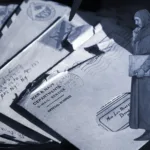
How do you start writing after you’ve developed a plot?

“I have the story of the novel, I have the ideas, I have the plot, but… just how do I really start writing???”
There is nothing more intimidating to a writer than a blank page. Staring at the computer screen with that flashing cursor just taunting you makes it so easy to get overwhelmed by the mammoth task in front of you.
Even if you’ve brainstormed, outlined, plotted. Even if all your characters have names, motivations, and backstories. Even if you know how your story begins, how it ends, and most of what happens in between, that blank page will be there, pressuring you to actually start and get writing.
This is one of the most frustrating paradoxes of writing: preparation doesn’t guarantee momentum. Knowing your story and writing your story are two entirely different things, and the gap between them can feel impossibly wide.
Why starting is so hard (even when you’re prepared)
The planning phase feels safe. You can revise an outline endlessly with no one seeing it. You can change character names, swap plot points, and reimagine entire storylines without consequence. But the moment you start writing actual prose, everything becomes real.
That blank page represents commitment. Once you write that first sentence, you’re making choices about voice, tone, and style, transforming your perfect vision into imperfect words. And that’s terrifying, even when you know exactly what you want to say.
The harsh truth
As much as empathy and platitudes may make us feel better (it’s good to know you’re not alone in how you’re feeling), ultimately the only real advice on getting started is harsh, but unavoidable.
You just need to write.
Overthinking, getting in your own head; all these things are blocks, and the best way to get over them is just to start doing. Stop thinking. Start writing. Because just starting is the hardest step to take, and once that’s done, you’ll be able to make progress.
The permission you need to give yourself
With that harsh truth out of the way, however, there are some mental changes you can make to ensure that you can just start writing. And the first step is to accept something fundamental: your first draft will not match the story in your head.
The version in your imagination has the benefit of being vague in all the right places. You haven’t had to make choices in words, tone and style yet, so your idea can still exist, ephemeral and flawless.
But your first draft won’t be flawless. It might not even be good. But that’s not your first draft’s job. Its job is to exist.
You can’t edit a blank page, but you can edit a messy first draft. Give yourself permission to write badly. Give yourself permission to skip scenes that aren’t flowing. Give yourself permission to write placeholders and move on. With the knowledge that what you write doesn’t need to be perfect, that blank page suddenly won’t seem quite so intimidating.
Practical strategies to just get started
Start anywhere but the beginning
Your opening chapter doesn’t have to be the first thing you write. Opening chapters carry enormous weight, which creates a lot of unnecessary pressure. They need to hook readers, establish your voice, introduce characters, and set up the story. That’s a lot of pressure for day one of drafting.
Instead, write the scene you’re most excited about. Write the confrontation with the villain, the first kiss between the protagonist and their love interest, or the action sequence that’s been playing in your head like a movie. Let yourself have fun and build momentum with the easy stuff before tackling the hard stuff.
Set a laughably small goal
A lofty goal sets you up for failure, especially if you’re already feeling overwhelmed, so keep your goals small and achievable. Aim to write one paragraph. One hundred words. Five minutes of writing. Whatever gets you started!
Small goals erase the pressure that can create the paralysis you feel when sitting down to a blank page. Once you’ve written that paragraph, you can write another. Or you can stop, having met your goal and proven to yourself that you can do this, and set another small goal for the next day.
Small progress is still progress. And sometimes all you need is to build the habit to make writing feel less intimidating and overwhelming.
Use a timer and write without stopping
Set a timer for fifteen or twenty minutes and write without pausing to edit, revise, or judge. Don’t let yourself delete anything. Don’t let yourself reread what you’ve written. Just keep your fingers moving and see what comes out.
Freewriting bypasses your internal editor letting you tell the story without worrying about how it sounds. You might not like what you’ve written, but you’ve cleared the first hurdle, and it can only get easier from here.
Write the “bad” version first
Give yourself explicit permission to write the version you know isn’t good enough. Write the exposition-heavy opening. Write the clunky dialogue. Write the scene with too much description (or not enough). Just get it down on the page knowing that you can change it in revision.
Often, the “bad” version isn’t actually that bad. And even when it is, it gives you something concrete to develop.





























